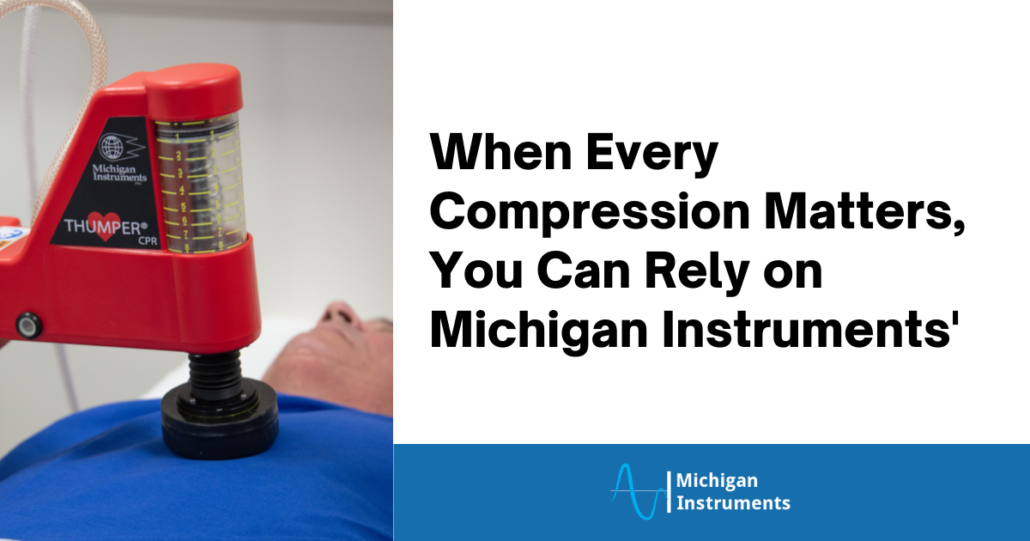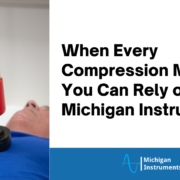
When Every Compression Matters, You Can Rely on Michigan Instruments
Cardiopulmonary resuscitation, or CPR, is one of the primary factors that can influence the survival of a cardiac arrest patient. When proper, high-quality CPR is performed, it helps deliver oxygenated blood to the patient’s brain and other vital organs until medical care can be performed. This increases the patient’s chance of survival and reduces the risk of permanent neurological damage.
Manual CPR Fatigue Sets in Within 2 Minutes
Maintaining high quality, uninterrupted chest compressions is a key factor to increasing a patient’s chance of survival. However, a person performing manual CPR can become fatigued after performing just 2 minutes of chest compressions. Any deterioration in the depth or rate of compressions, or interruption to compressions caused by switching providers can impact the patient’s chances of survival. So, when every compression matters, you can rely on Michigan Instruments’ automated CPR devices to perform high-quality, continuous CPR.
What is High Quality CPR?
According to the American Heart Association (AHA), high-quality CPR must adhere to the following guidelines:
- Chest compression fraction >80%
- Compression rate of 100-120 per minute
- Compression depth of at least 50mm (2 inches) in adults and at least 1/3 the AP dimensions of the chest in infants and children
- No excessive ventilation
- Minimal interruptions in chest compressions
Performing high-quality, manual CPR requires substantial physical and mental effort from the caregiver, especially depending on how long the resuscitation takes and how many times compressions must be interrupted. This can become even more challenging in a pre-hospital setting when a patient is being transported. Michigan Instruments’ automated CPR devices provide a solution that not only helps to reduce caregiver fatigue, but also provide non-stop, high-quality compressions that comply with AHA guidelines.
Rely on Michigan Instruments’ Life-Stat and Thumper Automated CPR Devices
At Michigan Instruments, we know that every compression matters. That is why our automated CPR devices, the Life-Stat and Thumper, provide consistent, external compressions that give the cardiac arrest patient their best chance at survival. Being lightweight and easy to use, our devices support a quick transition from manual to automated CPR that minimizes the interruption to compressions. With high-quality, hands-free CPR being performed, it gives medical professionals the time to concentrate on performing other life-saving care.
CPR saves lives. That is why Michigan Instruments has been a dedicated leader in the field of automated CPR for over 55 years. If you want to learn how our automated CPR devices have helped EMS professionals, doctors and nurses provide their patients with high quality CPR and care, contact us to learn more.




